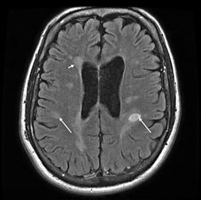Look for subtle differences when evaluating acute diarrhea
For the few cases of diarrhea severe enough to warrant medical attention, consider infections, toxicity, food allergies and medicine reactions, says a speaker from Internal Medicine 2009.
Unlike many of the conditions an internist treats, most doctors have had personal experience with diarrhea. In fact, the average American has an episode of acute diarrhea every year or two, according to Lawrence Schiller, FACP, a gastroenterologist at Digestive Health Associates of Texas in Dallas.
While most episodes of diarrhea are brief, and most people don't seek medical attention for them, some do end up becoming more severe and requiring medical care. As such, internists need to know how to recognize the subtle differences in presentation in order to properly evaluate and manage the condition, Dr. Schiller told a crowded audience at Internal Medicine 2009.
Initial evaluation

When evaluating a patient with diarrhea, the first step is determining if it is acute or chronic. Acute diarrhea lasts less than four weeks and is usually infectious, while chronic diarrhea lasts longer. The most likely cause of diarrhea lasting less than a week is a virus or bacteria; diarrhea lasting from one to four weeks is most likely caused by protozoa, Dr. Schiller said.
“Sometimes acute diarrhea can be the start of a chronic disorder, but that is probably less than 5% of the time,” Dr. Schiller said. “So if someone comes to you and says ‘I've had diarrhea for over a week,’ chances are it will be an acute, self-limiting process.”
The four main categories for differential diagnosis of diarrhea are infectious and toxic diarrheas; food allergy and/or intolerance; medication reactions; and an initial presentation of chronic diarrhea, Dr. Schiller said.
“We as internists bear a special responsibility in the area of medication reactions, because we seem to treat everyone with medications,” Dr. Schiller said. “If you look through the [Physician's Desk Reference], about 40% of drugs listed have diarrhea as a common side effect.” (See sidebar for categories of drugs that can cause diarrhea.)
The key to evaluating people with acute diarrhea is to take a thorough history. This includes determining the acuity and severity of the condition, to see if “some extraordinary means of rehydration are required to keep the patient going,” Dr. Schiller said. Stool characteristics are also important, such as whether there is blood or fat in the stool.
Most people with diarrhea are likely to have a bout after a meal, so it's important to ask whether this happens. If not, and if the person tends to wake up at night with diarrhea, the condition is more likely to be a secretory process that is unrelated to eating, Dr. Schiller said. Internists should also ask about any medication use, pain or cramping, and urgency/incontinence.
“Many people have (incontinence) problems but won't volunteer the information, so you should ask about it,” Dr. Schiller said.
Finally, an internist needs to ask several epidemiology-related questions during his or her evaluation, Dr. Schiller said. These include asking about what the person ate prior to diarrhea onset; exposure to institutional settings like nursing homes, where diarrhea is widespread; recent travel; sexual activity; illicit drug use; and occupation.
“I once had a man come in with diarrhea who was a hospital mechanic and plumber, and the day before he had gotten splashed in the face with hospital sewage, which is probably the most infectious stuff you can find on the face of the earth,” Dr. Schiller said. “That's why you should ask about occupation: to help you narrow down the cause.”
Exams and lab tests
The evaluation should continue with a physical examination, he said. Look out for orthostatic changes in pulse or blood pressure, fever and signs of toxicity, and unusual findings on abdominal exam, including hyperactive bowel sounds, distention and tenderness, Dr. Schiller said.
Lab testing for acute diarrhea should be limited, and only considered in those with persistent diarrhea lasting more than a week, signs of toxicity, or dehydrating diarrhea that requires fluid replenishment. In those cases, a complete blood count is a good idea. Here a physician would look for hemoconcentration for evidence of dehydration, and leukocytosis/leukopenia. Serum electrolytes/BUN/creatinine are also useful to measure dehydration levels and electrolyte depletion, Dr. Schiller said.
With stool samples, internists should think before they leap, Dr. Schiller said, as they cost about $250 for a culture.
“It's not a cheap test, so you should be sure the information will be useful to you before you order it. It's been suggested you do cultures only if there are fecal leukocytes in the stool,” Dr. Schiller said.
Unless indicated by an unusual finding on physical examination, sigmoidoscopy, colonoscopy and abdominal X-rays should be saved for acute patients with substantial toxicity, blood in the stool and persistent problems, he said. It's important to biopsy the colon during colonoscopy, he added, to look for self-limited colitis, chronic colitis, or microscopic colitis syndrome, which may provide prognostic information.
Treatment
Most people with acute diarrhea only need to have fluids and electrolytes replaced, Dr. Schiller said, and oral rehydration is usually adequate. “This fluid isn't Gatorade or Powerade or things that are made for people who sweat a lot from exercise. You need something with a little more salt in it, and solutions similar to the World Health Organization rehydration solution are now available commercially in the U.S.,” Dr. Schiller said, including Rehydralyte and Ricalyte.
Unless the patient is responding to a food allergy, there are no specific diet restrictions for acute diarrhea, Dr. Schiller said. Patients may have temporary lactose intolerance, but the most this will do is prolong diarrhea. In most cases, antibiotics are also not indicated, though there are exceptions, as in the case of traveler's diarrhea.
“You can reduce the duration of traveler's diarrhea by about a day if you give the patient antibiotics. For some people, that day can make a real difference,” Dr. Schiller said.
Antibiotics should also be given if there is a defined outbreak of bacterial enteritis in an area to which the patient was exposed. While there is a tendency to give antibiotics to people with extreme toxicity, there's no clear proof that this is helpful, and physicians should be cautious, Dr. Schiller said. Patients whose diarrhea is a response to specific foods or medication should work with their physician on alternatives, he added.
Non-specific antidiarrheal agents, such as loperamide, bismuth, kaolin and psyllium, don't do much, as the patient's body is likely to be clearing an infection by the time he or she seeks medical attention. But careful use of these isn't bad, either, as long as the patient isn't toxic, or tender/distended in the abdomen.
“I wouldn't expect much to happen with these, but some people enjoy taking medicine,” Dr. Schiller said. “I don't think these medications are any worse than placebo would be.”





